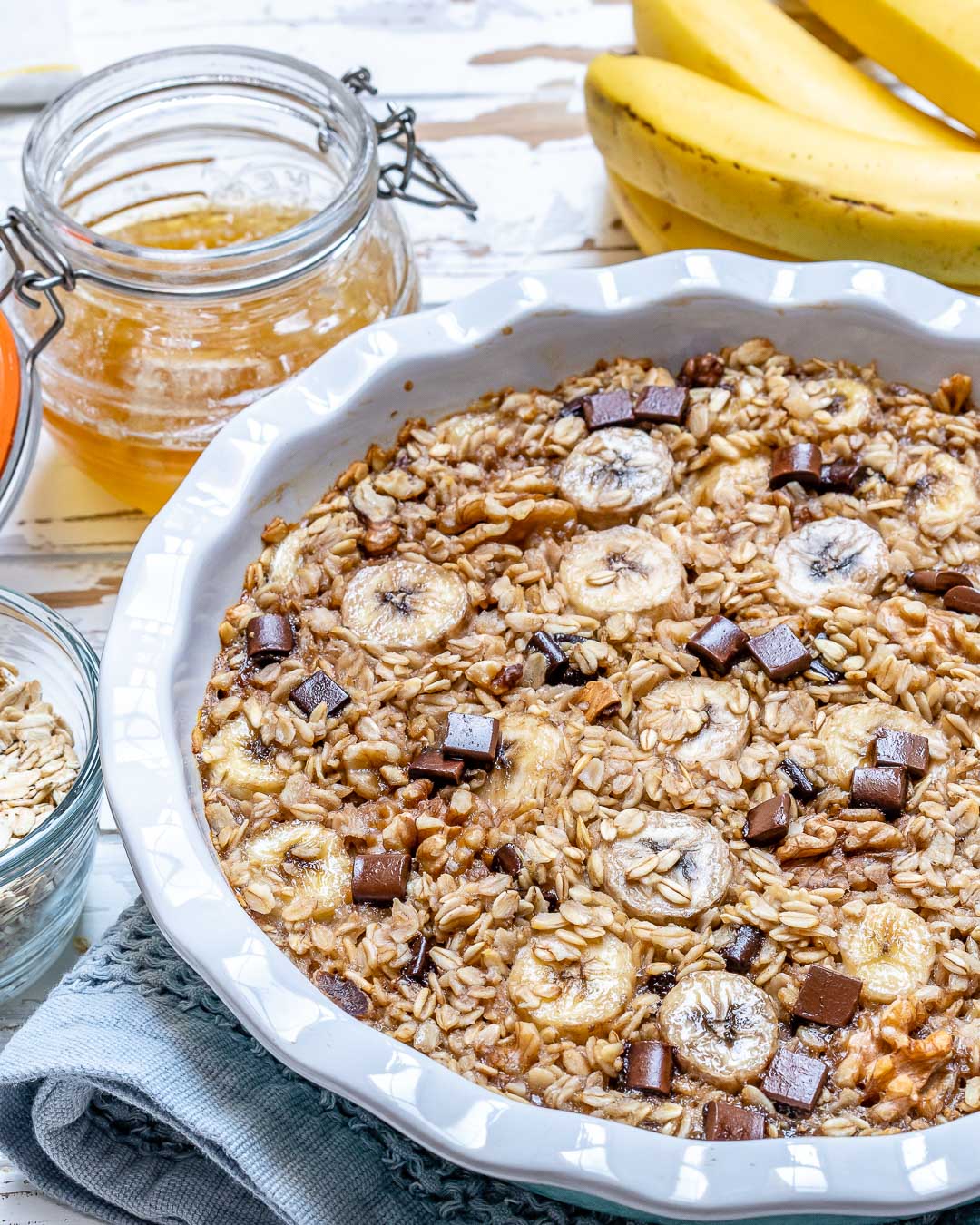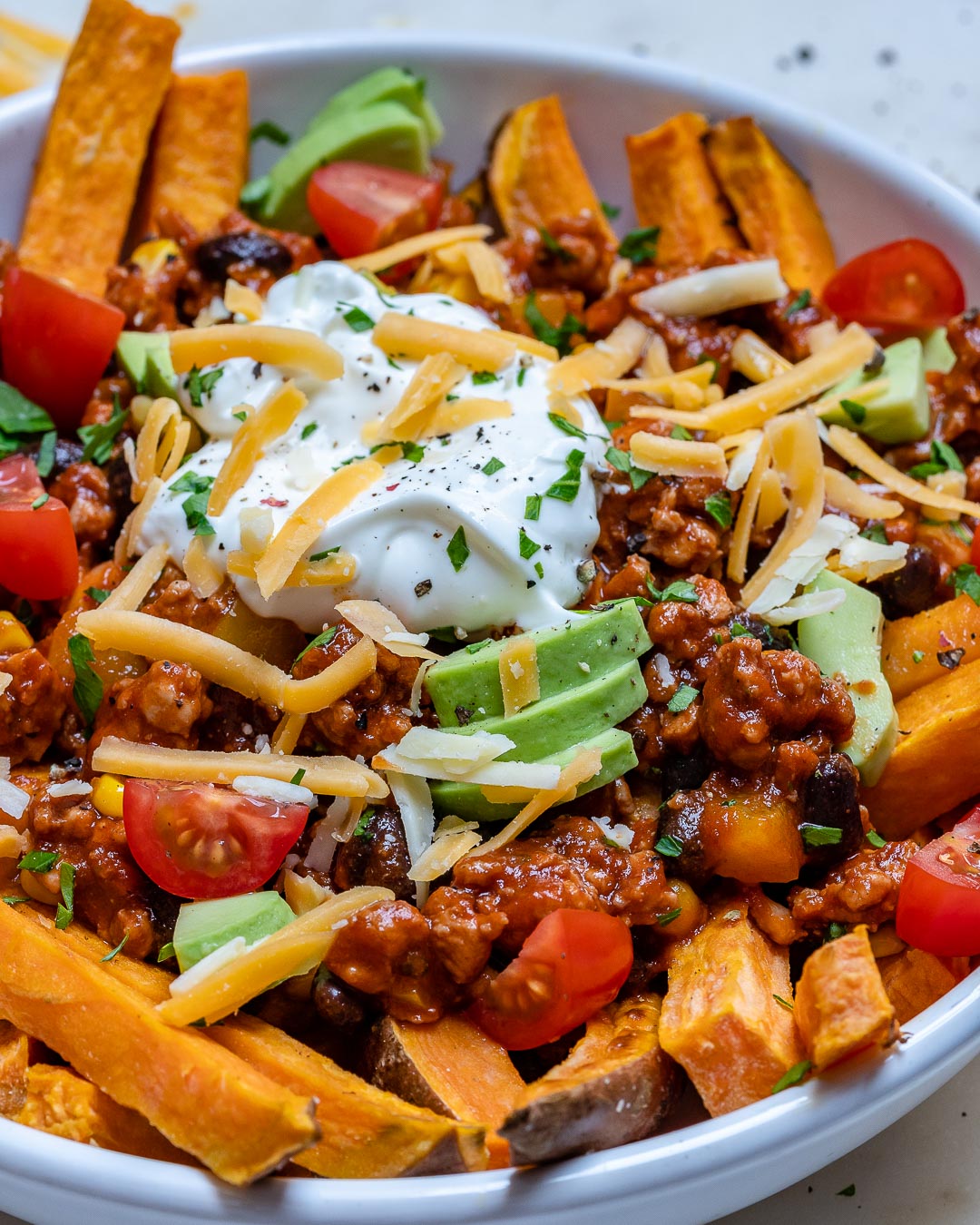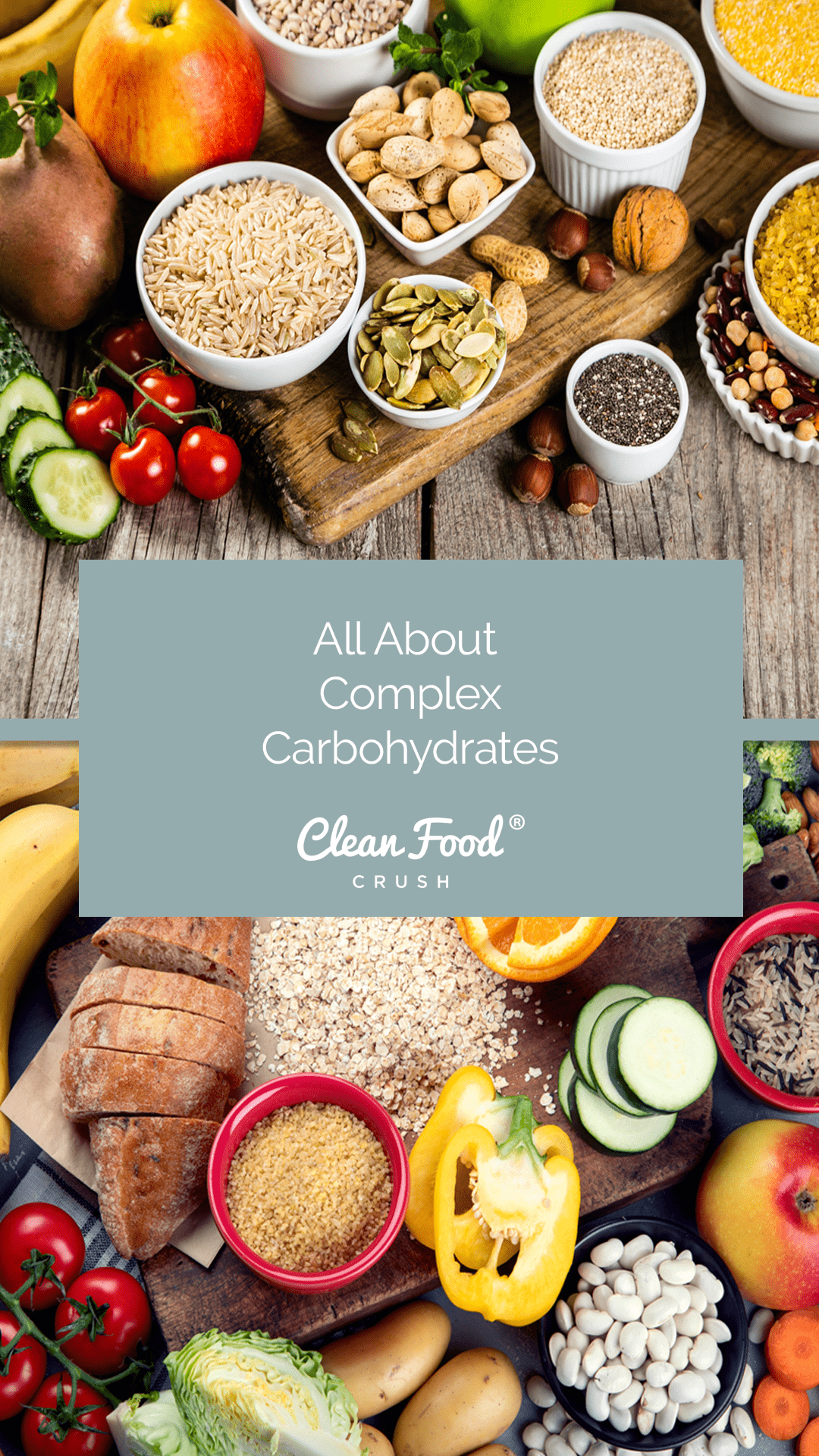

Carbohydrates have received a bad reputation for many years now, thanks to things like the low-fat diet craze of the 1990’s, the notoriously popular Atkins diet plan, and most recently, the infamous Keto diet. You may be wondering what all this fuss is about and whether or not carbs are good for you or not. And if they are, what are the best sources and how much do you need?
We’ll dive into each of these things further, and hopefully leave you feeling more comfortable and confident in your carbohydrate choices!
What do Carbohydrates do?
Before we dive into the types of carbs and which ones to focus on, it’s important to have at least a basic understanding of what they do so that you can know why they are so crucial to health.
Carbs are the body’s preferred energy source. This means that things like the muscles and brain specifically seek out and expect energy to come from carbohydrates, which fuels their ability to function properly. While it is true that the body can adapt to using fuel from other sources like fat and even protein (which is good because it helps us survive in a variety of situations), these are less efficient processes and may come at the negative expense of other things, such as losing muscle mass.
Carbs are also a great source of nutrients like B vitamins, and are the only source of dietary fiber. Fiber is important for so many things like digestive health, managing cholesterol and blood sugar levels, and protecting against many diseases including some cancers.
So clearly, carbs are important!
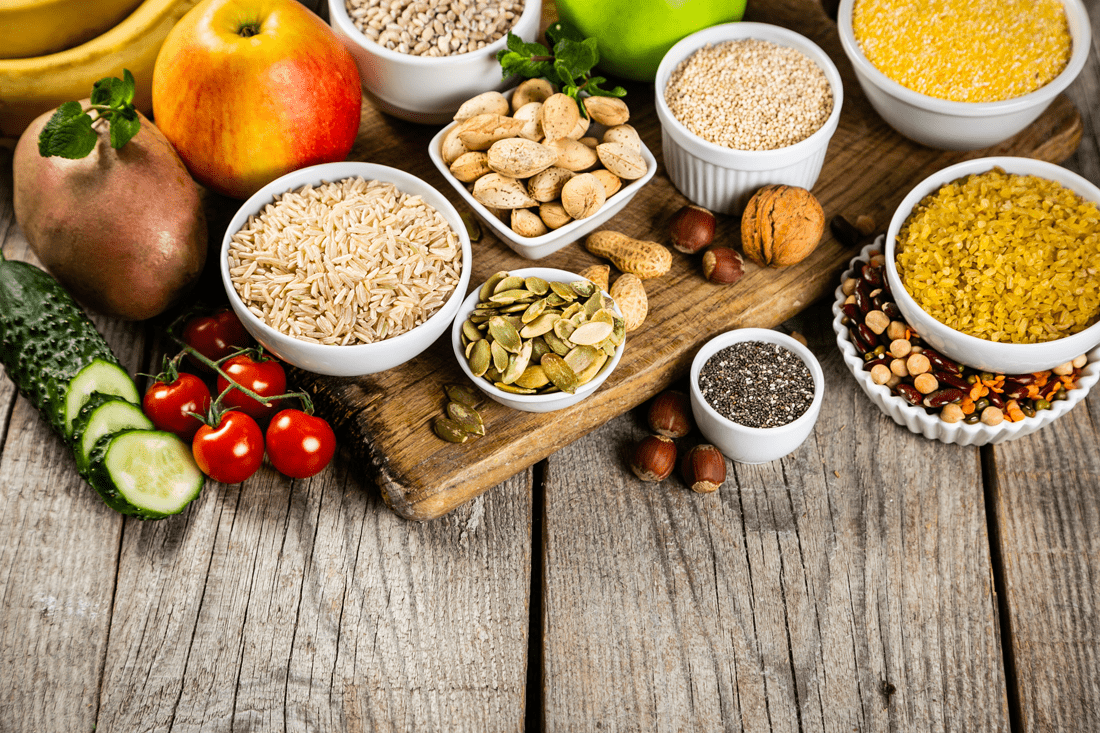
Complex versus Simple Carbs
You’ve likely heard by now that not all carbs are created equally. But what exactly does that mean? It all has to do with the type of carbohydrate you’re eating.
There are 2 major types of carbohydrates:
- Complex
- Simple
Simple carbs are made up of short molecules and are broken down quickly and easily by the body. Sugars are the most common example of a simple carbohydrate such as foods made with white sugar as well as natural sugars like honey and maple syrup, and juice. Dairy products like milk and yogurt are also forms of simple carbs due to the lactose (milk sugar) they contain. Simple carbs cause the blood sugar to rise rapidly which gives a burst of energy, yet doesn’t last very long. Eating too many simple carbs can lead to the development of conditions like diabetes, as well as cause hormonal imbalances, digestive issues, and more.
Complex carbs, on the other hand, are larger molecules and take longer to digest and absorb in the body. Starch and fiber are types of complex carbs and food examples include things like whole grains, fruits, vegetables, and beans. Complex carbs contain more nutrients than simple carbs and are much better for overall health. So when it comes to carbohydrate choices, complex is best.
Best Complex Carb Food Choices
The good news is that there are so many different sources of complex carbs, and they can fit within any dietary preferences or needs.
Some of our top recommendations are:
- Whole grains like oats, brown rice, quinoa, farro, and whole wheat pastas, whole wheat tortillas, Ezekiel breads, etc
- Starchy vegetables like yams, sweet potatoes, and butternut squash
- Non starchy vegetables like asparagus, broccoli, leafy greens, bell peppers, carrots, and cauliflower
- Fruits like berries, apples, citrus, melons, and tropical fruits like mango, kiwi and bananas
- Beans and legumes like black beans, garbanzo beans, lentils, and peanuts
- Nuts and seeds like almonds, walnuts, chia and flax seeds
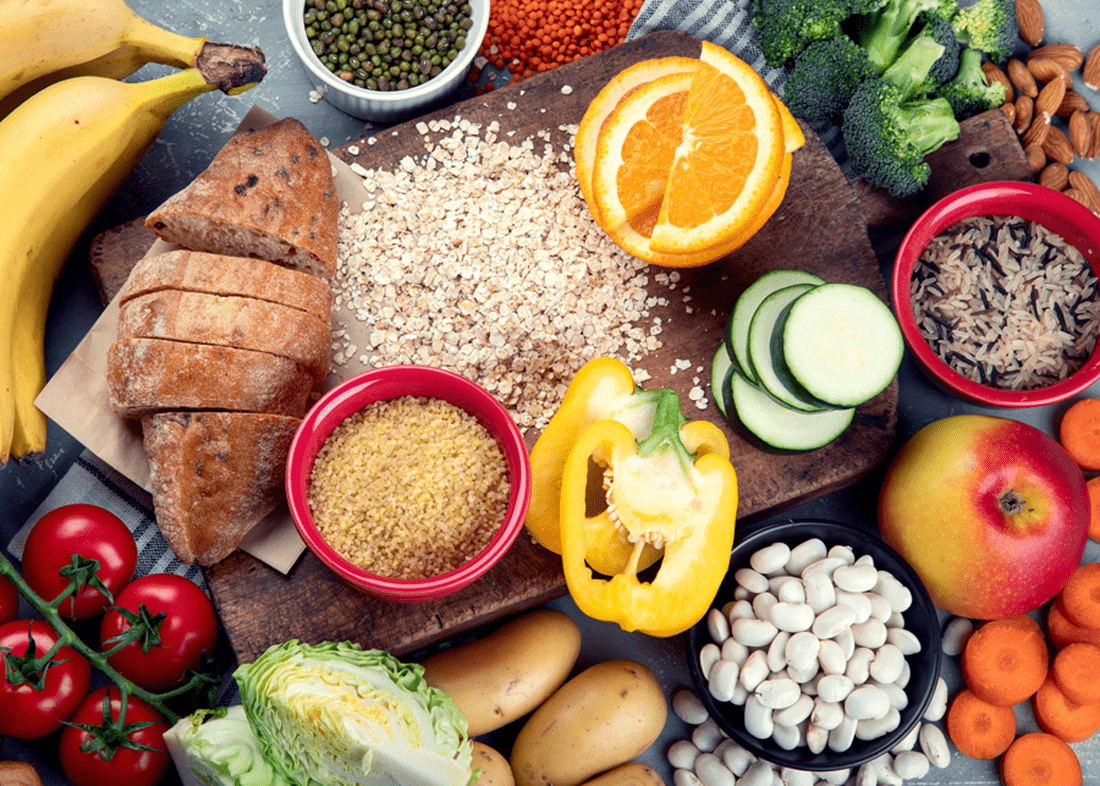
What Balancing Carbs Looks Like
Just because complex carbs are the healthier choice of the two doesn’t mean that simple carbs are off the table or that you should ever feel guilty for eating them. Life wouldn’t be complete without enjoying some ice cream on occasion or having a cupcake to celebrate a birthday, are we right? With carbs (and eating patterns in general), it never has to be “all or nothing”. We encourage placing the focus on complex carbs as much as possible to reap the many benefits that they provide, but think it is definitely okay to also consume simple carbs sprinkled in there.
Balancing carbohydrates also means making an effort to consume them alongside the other 2 macronutrients: protein and fat. Pairing carbs with at least one of these other macronutrient sources helps provide better nutritional density and also helps balance out blood sugar levels, promotes a greater feeling of fullness, and so much more.
You also may be wondering about how much you should be eating. There is no exact answer to this, since carbohydrate needs vary depending on many factors such as weight, gender, activity levels, health conditions and goals, and stage of life. We don’t recommend counting carbohydrate grams and instead recommend focusing on balance and moderation like what is outlined above.
Bottom Line
Carbs are not evil like some people and the media often make them out to seem. They are essential for health and quite frankly they are totally delicious! While we recommend making a majority of your carbohydrate choices the complex varieties, it’s okay to also enjoy simple carbs on occasion. So rest assured, you can eat carbs without derailing your health. You can find some delicious recipes that focus on complex carbs here!








